"You Respond to Surveys and Don't Realize How Much Impact You Have"; Interview with the Director of the Haredi Research Institute
Five years after founding the 'Askaria' research institute for the Haredi community, Dudi Dror talks about the challenges, reveals surprising insights and data, and explains the immense impact of surveys.
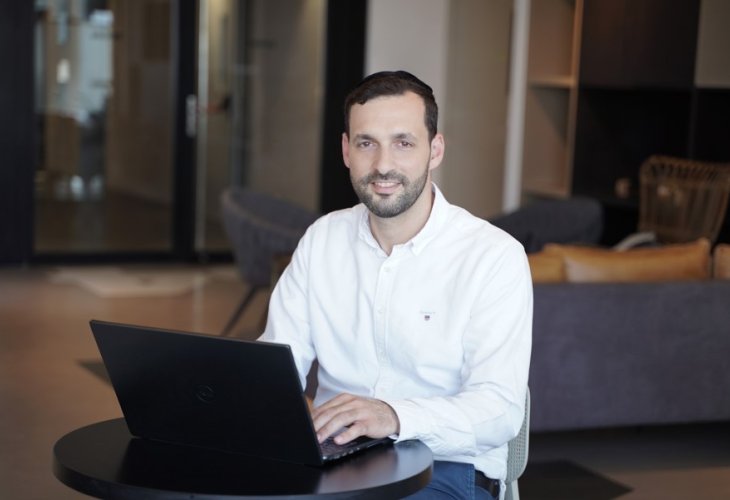 Dudi Dror (Photo Credit: Almog Gabai)
Dudi Dror (Photo Credit: Almog Gabai)The Haredi community grows at approximately 4.2% per year; the average Haredi family has 6.6 children; 90% of this sector gives to charity... If these sound like straightforward statistics that can be obtained at the click of a button, you may not truly understand what's behind the surveys that lead to this data.
Conducting a survey is always a complex challenge, with the main difficulty being to achieve maximum accuracy that reflects the true sentiment of the public. However, when it comes to the Haredi way of life, it is considerably more difficult, as the Haredi community is quite different from the general public, and it is very hard to segment it.
Dudi Dror, a resident of Bnei Brak, who heads the 'Askaria' Institute specializing in Haredi population surveys, is one of the few who dared to take on the task of establishing an institute focused exclusively on conducting special surveys for the Haredi public.
"The truth is that when we say 'Haredi,' I'm faced with a problem," he mentions at the start of our conversation. "On a personal level, I know of at least eight definitions attempting to answer the question 'Who is a Haredi?' Therefore, when our institute comes to represent the public, we try to simply refer to the definition the individual uses for themselves—namely, whether they see themselves as Haredi. Of course, we also ask questions regarding the school they attended, their family, and more, but first and foremost, we are interested in what they think of themselves."
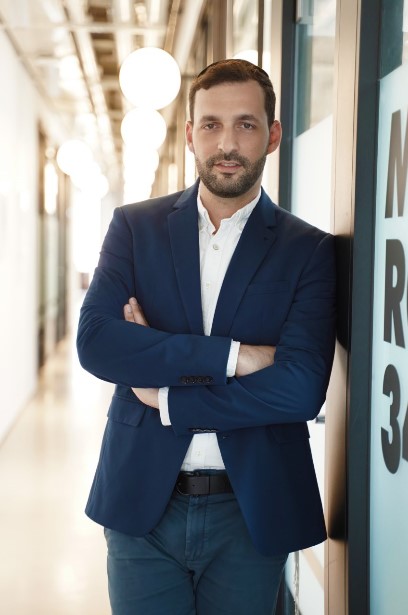 Dudi Dror (Photo Credit: Almog Gabai)
Dudi Dror (Photo Credit: Almog Gabai)"The Impact is Enormous"
Dror talks about his path to the world of research: "I entered the field about five years ago. At that time, I was studying for a degree in psychology, and one of the statistics lecturers raised the need to open a research institute specializing in the Haredi community. We all heard it, but unlike other students who moved on, I immediately began to formulate a concrete plan. Three days later, I already had my first client requesting a survey from us, thus I dove in. At first, I did everything myself, simultaneously with my other job and in my spare time. As time went by and I was exposed to the significant demand, I realized this was not enough. I left my permanent job and began to dedicate myself entirely to establishing a professional and true research institute that would provide very accurate surveys on the Haredi community—Askaria Institute."
And why do you think there is a need for such surveys? Who are the people who need them?
"Of course, my aspiration is to provide the information to business owners to help them strategize when targeting the Haredi sector, but beyond that, I see this as a golden opportunity to assist the sector itself. It is important to understand that a significant part of our surveys involves social topics like transportation, housing, and many other very relevant topics. Local authorities and governmental offices repeatedly request data from us, and when we provide it, the Haredi public receives more accurate and respectful representation.
"For example, at the beginning of the corona period, the Ministry of Health began to realize that communication and messaging were not effectively reaching the Haredi public, and they asked us to conduct surveys to pinpoint where the problem was. This directly led to the allocation of special resources for public communication in the Haredi sector. Incidentally, in economic matters, when we conduct a survey for a retail chain that wants to understand the shopping and consumption habits of the Haredi community, and people respond, in the end, they benefit because the chain will better cater to the sector's needs.
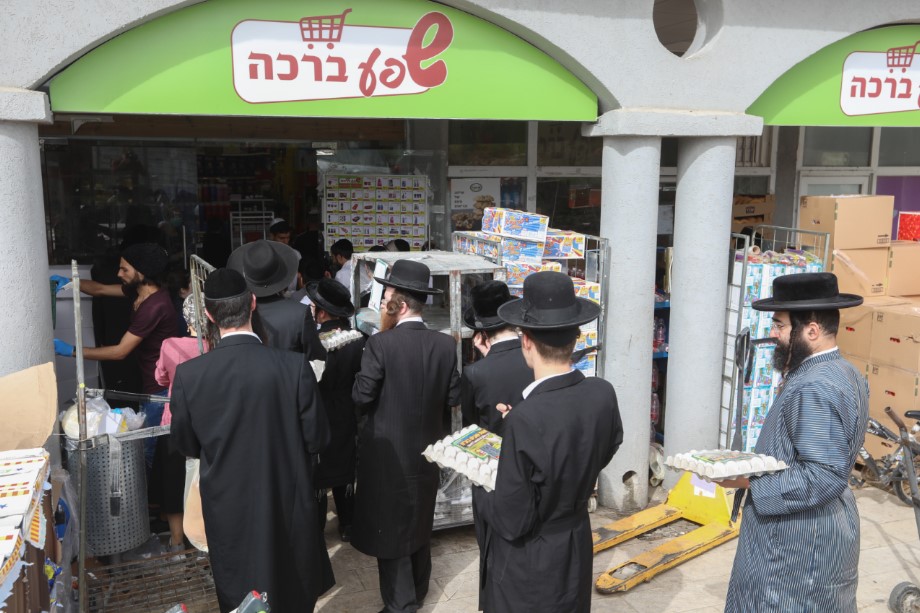 Illustration (Yaakov Lederman / Flash 90)
Illustration (Yaakov Lederman / Flash 90)"People sometimes answer the phone and when they hear it is a representative asking them to answer a survey, they hesitate or think it's a waste of time. I think most people don't even realize how significant their influence is on decision-making at top levels in the country. We also work with politicians and with people who make decisions about budgets of millions of shekels. When we sample, for example, 500 families, each has an incalculably great impact on decision-making."
"The Haredi Public is Diverse, That's the Reality"
The Haredi sector, as known, is composed of many factions and sub-factions. How is it even possible to survey it?
"That is genuinely our main difficulty. Everyone understands that when surveying the entire population, the sample group must represent all people; otherwise, the answers will not be relevant. For example, we all know that if we take a sample of 500 people from Bnei Brak and attempt to learn from it about the public sentiment in Israel regarding elections, the result will be that Shas and Agudat Yisrael will receive about 100 mandates together, which is far from the reality... Obviously, this does not reflect Israeli society as a whole.
"The same goes for internal surveys within the Haredi community—since it consists of sub-sectors, it is crucial to give each their representation according to their part in the population, whether it's a Hasidic businessman, a yeshiva student from Modi'in Illit, or a modern Haredi academic household on the Bnei Brak-Ramat Gan border."
So how do you do it?
"To investigate the Haredi sector, it is very important to have deep knowledge. It's not enough to know where it resides; you need to know each stream closely with its behaviors and characteristics. For example, if I know the streams I am surveying are divided into thirds, thirds, thirds, then in my research, I make sure to sample proportionally so that it fits the population. But if, for instance, I know that in about 44% of Haredi households the husband is a yeshiva student, then at the start of the conversation with the woman, I'll ask if her husband is a yeshiva student to filter further. Of course, you can delve into thinner nuances, but not always is there a need to consider them; everything depends on the research subject."
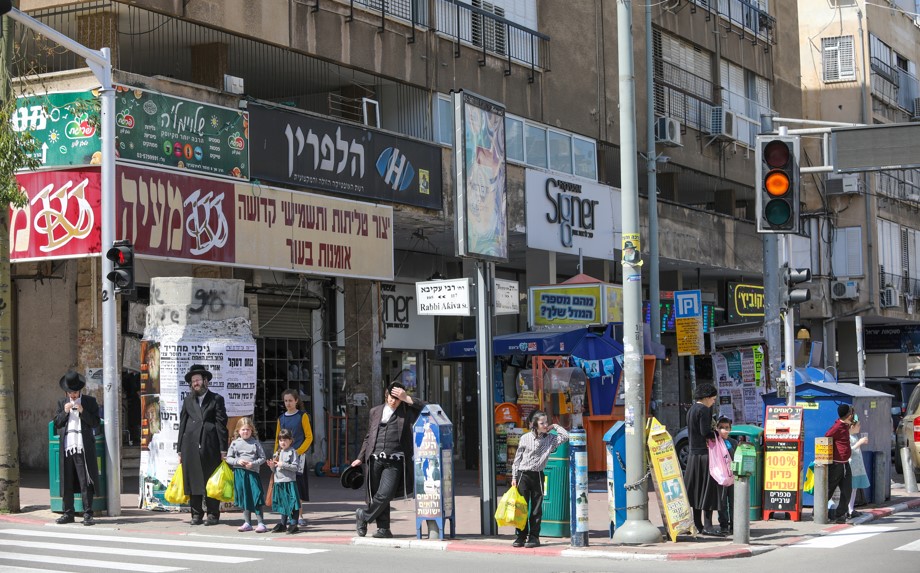 Illustration (Yossi Aloni / Flash 90)
Illustration (Yossi Aloni / Flash 90)And how do you reach the families?
"In the initial stages, we invested in obtaining phone numbers. We acquired phone directories of all Haredi concentrations across the country, including small settlements and mixed places. Additionally, we invested much energy and money to gather additional numbers and create a large phone circle. Today, we can reach every sub-community in any place in the country. It might sound like a technical aspect, but it is very essential.
"After having the phone numbers and the correct target audience, we only employ Haredi representatives who are well aware of the nuances and know how to phrase questions correctly. Very often, even when you ask a very simple question like 'Which cheider do your children attend?' even pronouncing the word 'cheider' incorrectly can signal to the other side that the person calling doesn’t understand the context, and there’s no reason to cooperate. Similarly, with kosher certifications, you need to be very familiar with different certifications and have control over topics like shchitot chabura, and more. Coming into a conversation with the right background and information allows it to flow.
"We also invest deeply in the precision of our questions and formulations. We would never ask the Haredi public, 'Do you surf the internet?' because this isn’t on the same wavelength. If we return to the issue of kosher certifications, we might ask the mother: 'When you send your daughter to be the Shabbat mommy in kindergarten on Friday, which kosher certification does the teacher require for the candy?' A question phrased this way reflects a profound understanding of the content world and can provide the most accurate information on communal kashruth."
Aiming to Influence
Dror notes an interesting point: "Sometimes it's surprising to see how things change during the execution of a survey. For instance, when we were asked to conduct a survey on vaccinations within the Haredi community, it started when the vaccines first arrived in the country, and the hesitations and inability to make a clear decision were noticeable among the population. Shortly thereafter, while we were still in the survey process, rabbinic calls to vaccinate and increased public awareness already began to be heard. We saw a definitive jump in positive responses, and the willingness to receive the vaccines increased. This made the survey much more interesting because from a certain point in time, things changed."
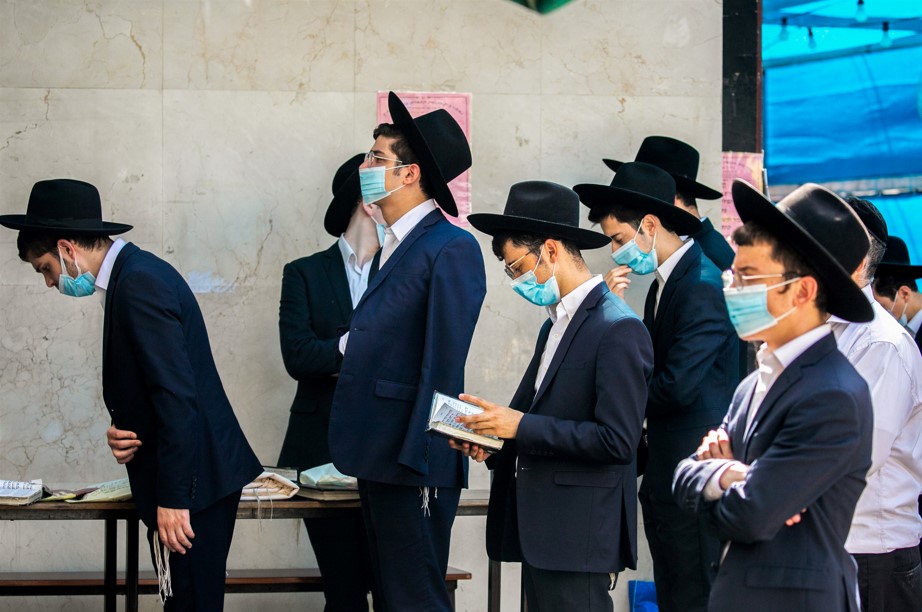 Illustration (Yossi Aloni / Flash 90)
Illustration (Yossi Aloni / Flash 90)Can you tell us about other interesting surveys you have conducted?
"Definitely. A fascinating survey we recently conducted was about overseas online shopping behaviors. We discovered that for every three women from the general sector who order from NEXT, there are 14 Haredi women who order. Conversely, on a site like AliExpress, the ratio is 1% of Haredi women compared to 37% from the general sector, and on Amazon, the Haredi response is also very low. This shows how well-suited the offerings on NEXT are to the Haredi sector in terms of modesty.
"Another survey we conducted was in the political field, which demonstrated that satisfaction with Haredi Members of Knesset aligned with voting for them. That is, even in times when the public was not very satisfied with their performance, Shas voters were still satisfied with their Knesset members, as were G voters.
"After the Meron disaster, we felt it was our duty to probe the views of the Haredi public on topics related to the tragedy, such as assigning responsibility, establishing a state inquiry commission, and more. It was interesting to see that about 70% of respondents stated they consider the Israel Police fully or partially responsible for the disaster. 45% believed there was negligence in safety measures at large events in the Haredi sector, and the vast majority believed a state commission of inquiry should investigate the tragedy."
According to your surveys, what do you think is the main difference between the secular and Haredi public? What is it mostly expressed in?
"Of course, there are significant differences, especially in fields like education, career, work, and more. However, there are also sectors where both groups are quite similar, like the food sector, where household consumption is fairly similar. Yet, I can point out that during the corona period, we discovered that the demand for ready-made food in the Haredi sector did not increase as it did in the general public. While the Haredi sector spent approximately 160 shekels a month on ordering food outside the home, the general sector spent about 680 shekels. Our assessment is that during those times, everyone needed a form of 'compensation' because we couldn't leave the house, and while in the general public the compensation came as food, in the Haredi sector, it came through other means."
Finally, is there any research you aspire to conduct and haven't yet done?
He contemplates for a moment. "I don't have a specific answer because we have many planned surveys, and I hope they all eventually come to fruition. Generally, I'm interested in any study that will impact the sector, as well as the Israeli economy, and that will resonate as broadly as possible. We've had instances where we conducted surveys that initially seemed small, but it turned out that large authorities used their findings, and they were presented in government meetings for significant decision-making purposes. Understanding the profound impact on central occurrences is thrilling, giving our work very vital and important value."

